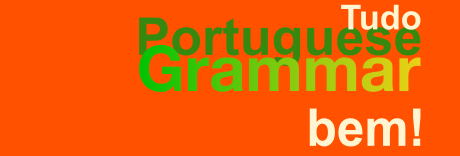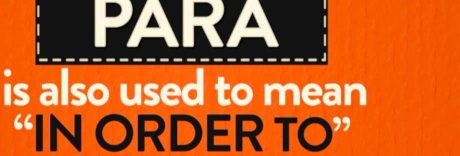
My mom still gets mad when I get “I” and “me” mixed up. It still happens too often, giving her joy every time. It’s the same thing in Portuguese. The big confusion is whether to say para mim or, para eu. Fortunately, there is a very simple trick to getting these right. Once you know…
Read more...

NADA, ZERO novidades de gramática 😀💚🇧🇷
Members Only

using para | the preposition por | using TER with que to express “to have to” | acabar ➜ to end up | tomar ➜ to take
Members Only

expression: dar para, expression: ter como, verb: aproveitar
Members Only

The combination of the Portuguese verb DAR + para is one of the most powerful you will find. Let me show you how to convey possibilities and abilities. With lots of real-world examples, from making a meal to to asking if something is doable. It’s a unique construction that, along with other special verbs like FICAR, IR, and TER, accelerates language learning and aids in natural conversations.
Read more...

It’s far too easy to get these two simple words confused! Whether to use POR vs. PARA quickly becomes an easy decision as soon as you see some key examples of each, in-context. Let’s do exactly that!
Read more...

the verb DAR with para | using ESTAR with com
Members Only

common comparatives | EXPERIMENTAR & PROVAR | the expression: cadê | using para | the preterit tense of verbs SER and IR | ligar ➜ to call, connect
Members Only

the verb DAR with para | diminutives and augmentatives | agradecer ➜ to thank | parar ➜ to stop
Members Only

Para has two meanings. (1) to (a place) You can use either a, or para to express to. In general, using para implies that you are going to somewhere in order to be there a while. Usually that’s to your home, to work etc. But don’t get hung up on…

DAR para = to be possible (to) Use this when you want to convey the possibility of something.

the verb DAR with para | using DESCER & SUBIR | aprovar ➜ to approve | descer ➜ to descend, go down | mexer ➜ to move, stir | subir ➜ to go up
Members Only

using para | chegar ➜ to arrive | completar ➜ to complete | entender ➜ to understand
Members Only

indefinite pronouns: pouco, muito | using para
Members Only

para
Members Only

contractions desse, dessa, dele, dela | using para | SER in the infinitive
Members Only

the verb DAR with para | using TER with que to express “to have to”
Members Only

I began my quest for fluency using the Pimsleur Portuguese audio program and had committed to memory this useful phrase: » Come here! Not just useful but this was helping me remember how the Imperative Mood works. So why is this post about Vem cá!? Because you will never hear, Venha aqui in Brazil: everyone…
Read more...

PARA can mean either to (some place), or for (in order for). This harmless preposition confuses people all the time because there exist also the preposition a, which also means to. Everyone asks which is correct: Eu vou à praia, or Eu vou para a praia-? Both are correct. Some will say that you should…
Read more...

















